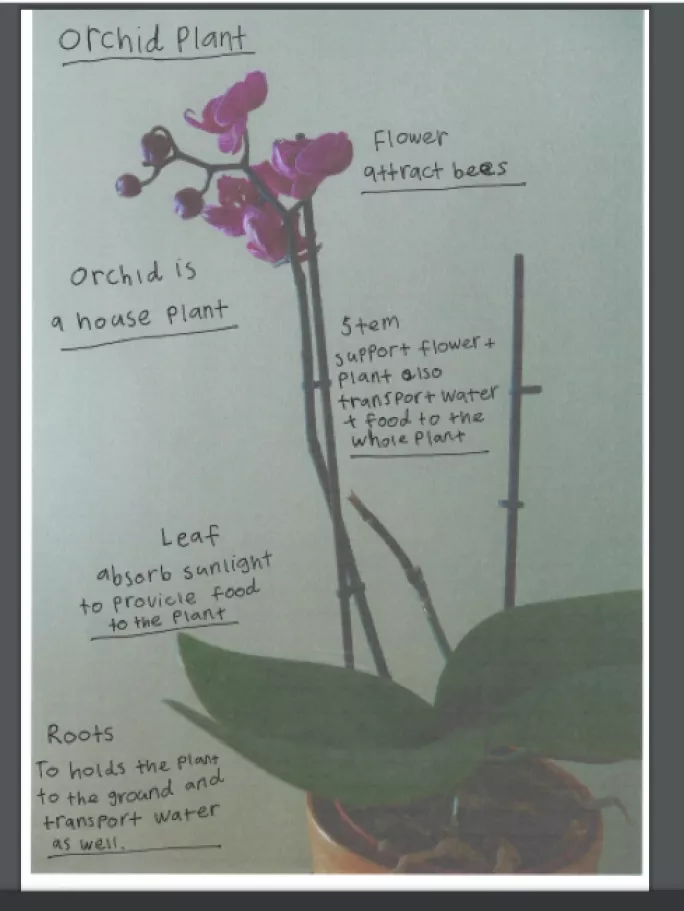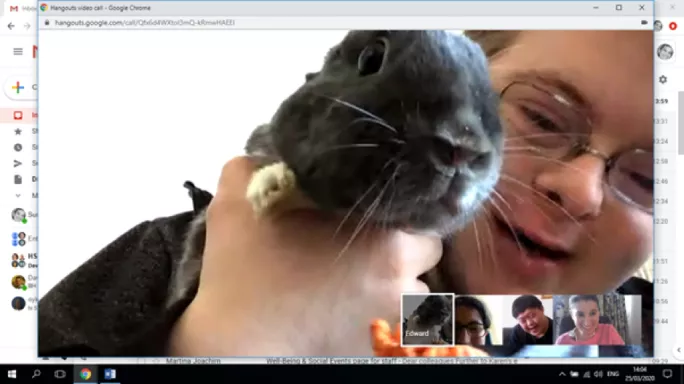- Home
- Covid-19: How to teach living skills remotely
Covid-19: How to teach living skills remotely

I teach independent living skills to students with significant learning disabilities and high complex needs at West London College. Normally, it’s challenging but hugely rewarding. In the current climate, it’s more challenging - and rewarding - than ever.
When we realised that the college would have to close its campus, we had a lot of conversations with the students about why this was happening, what the Coronavirus meant for the community, and why it was important to stay safe inside and wash your hands regularly. I have seven in my group and all but two of them understood what was going on.
The majority of them already use Google hang-outs and all homework is set on Google, so the notion of working online wasn’t completely unknown to them. However, in the first few days, I spoke to each of them to gain an understanding of what resources they had at home, and how they could be utilised. I also reached out to all of the parents to make sure they understood how the learning would work and how they could offer further support with the work set if the student required it.
Watch: How to teach sport and coaching remotely
Watch: How to teach beauty therapy remotely
More: What happens when a hotel run by SEND students shuts?
Once I’d made sure everyone was set up and happy using Google hang-outs from home, I made them all a folder in Google classroom, to which I explained, all their work would need to be submitted and where they could access any feedback from me. For those who don’t have access to the internet or a laptop at home, I gave them a physical pack of work to do, and made sure I would be able to FaceTime or Whatsapp video chat with them each day.
How it works day-to-day
To keep things as structured and clear as possible for the students, I keep the timings of everyday the same. I am online on Google hang-outs from 10am to 3pm every week day. At 10am I set their daily tasks, at 11am we have a whole-class google call to discuss how the task is going and talk about any concerns they may have.
We have another call at 2pm in which we discuss the work but also the importance of staying at home. Many of them can only process things on a daily basis and often ask me if they can return to college tomorrow or next week. We discuss the virus and how this impacts everyones’ lives and stress the need for them to stay safe at home and regularly wash their hands.
Some of them aren’t ready to take part in a whole class hang-out call, and that’s fine, I do individual video calls with them afterwards.
The students are working towards one of three OCN-awarded certificates: an entry two award in leisure activities, entry one certificate in independent living skills and living in the community, or entry two certificate independent living skills and living in the community.
In these we are covering three modules: enterprise, gardening and animal care.
Enterprise
At college, we have a working kitchen in which the students make tea, coffee and hot chocolate to sell. We also grow our own vegetables in our polytunnel which they sell too. Normally at the end of each day the students would count all the money and figure out how much profit we have made. I’ve tried to replicate this as much as possible at home and have set the students tasks to make and “sell” teas and coffees to their parents and carers. They collect the money and count it at the end of the day in the same way we do at college.
Gardening
In our poly tunnel at college that we plant fruit, vegetables and flowers in. For the students who do have gardens at home they can work in, I set them tasks of planting seeds, watering and maintaining plants. If they don’t have a garden, but have plants in their homes, I ask them to measure the growth of the plants and plot these on a graph. If they don’t have any plants or flowers in their house, I ask them to pick some from a park when they go on their daily walks, take pictures and label each part of the plant and describe what it does.

Animal care
At college we have fish, African snails and a rabbit that we look after. Some students do have pets at home that they can feed and clean out - if they do, I set maintenance tasks for them, and ask them to monitor the behaviour and diet of their pets. London Zoo and Chester Zoo have been doing some amazing live sessions with their animals, and so if they haven’t got their own pet I ask them to tune in to those and describe what they’ve seen.

All of the students are really engaged and know that I am available if they ever want to ask any questions or if they’ve got any concerns. They love seeing the feedback live on the work they submit to me, and are keen to work hard and make progress.
When everything gets back to normal, we are planning to offer some IT lessons in college in which the students will teach the parents how to access learning online, to really reinforce what they’ve learned during this time.
It has been challenging, and has taken longer with the more complex students to get them up and running and happy and comfortable working remotely. But actually, online learning has gone better than we ever expected.
Susana Cortez is SEN specialist, inclusive learning at Ealing, Hammersmith and West London College.
Keep reading for just £1 per month
You've reached your limit of free articles this month. Subscribe for £1 per month for three months and get:
- Unlimited access to all Tes magazine content
- Exclusive subscriber-only stories
- Award-winning email newsletters